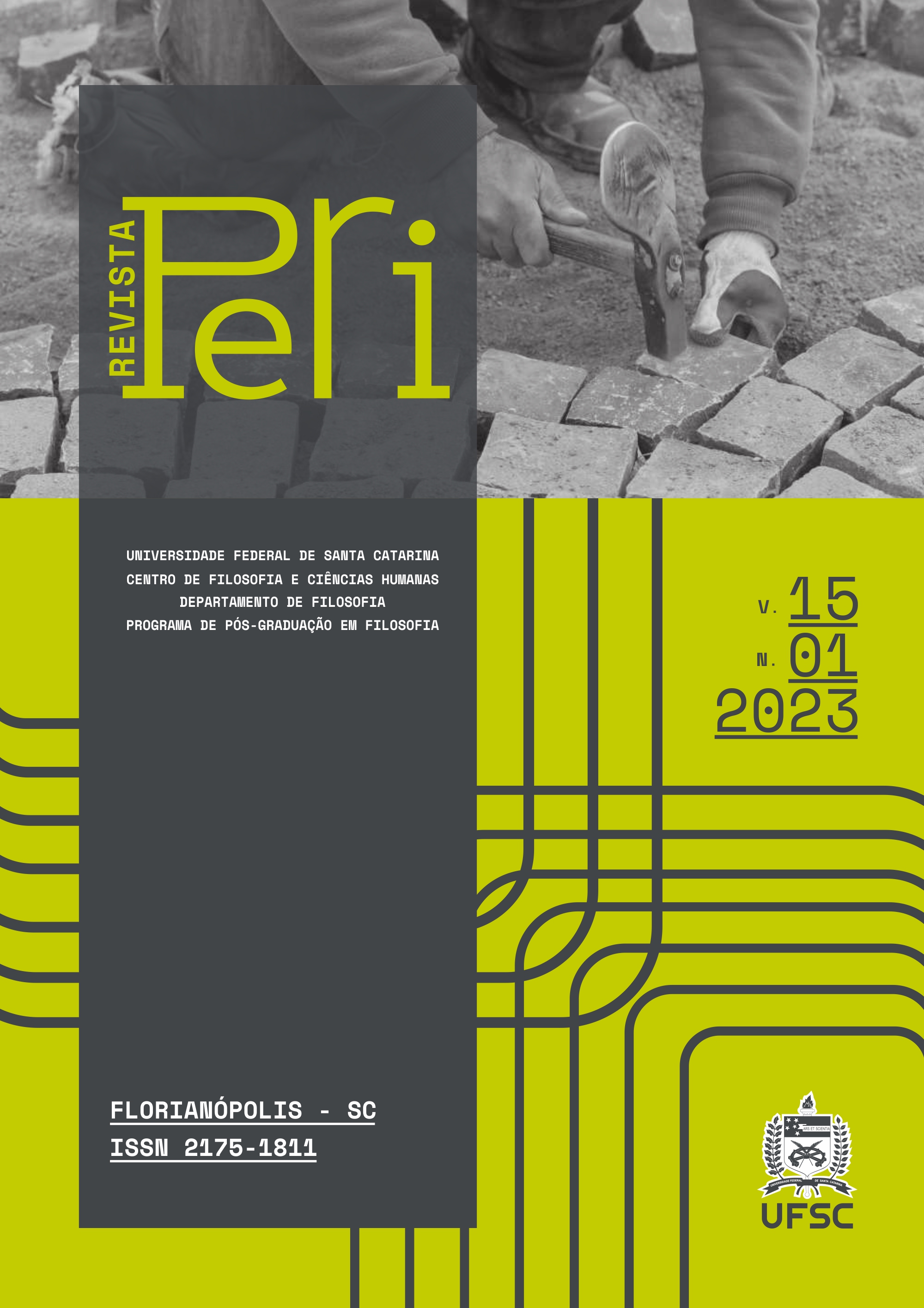Uma análise ricoeuriana da construção narrativa de identidade a partir do estudo biopolitico de Esposito sobre o nazismo
Palavras-chave:
Paul Ricœur, Roberto Esposito, Identidade narrativa, Biopolítica, NazismoResumo
O objetivo deste artigo é averiguar se a teoria da identidade narrativa de Paul Ricœur é capaz de explicar as identidades formadas pelo discurso biomédico redutivista do nazismo, segundo os estudos de Roberto Esposito sobre o enigma da biopolítica no caso da Alemanha nazista. Neste sentido, o estudo é dividido em três partes, uma de apresentação das considerações de Esposito sobre a tanatopolítica nazista, outra de elucidação da teoria da identidade narrativa de Ricœur e uma última parte de convergência entre as duas. O foco do primeiro tópico é de apresentar o enigma da biopolítica – isto é, por que uma política voltada para a promoção da vida acaba resultando em morte? – e a interpretação biopolítica de Esposito sobre o nazismo, o maior exemplo histórico de biopolítica que se converte em tanatopolítica; desta interpretação se segue a observação do conjunto simbólico do ideário nazista, que preza por um redutivismo das dimensões políticas, históricas e sociais a uma visão biológica e médica. O segundo tópico versa sobre dois dos três paradoxos da identidade apresentados por Ricœur em conferência (1995), que tratam do problema temporal da identidade pessoal e do problema da constituição intersubjetiva do ‘eu’. A resolução dos paradoxos se dá pela narratividade, que desemboca nas considerações sobre a identidade narrativa. O terceiro tópico posiciona as lentes ricœurianas para a análise do ideário redutivista biomédico do nazismo, segundo o que fora apresentado do estudo de Esposito. Por esse caminho, foi possível concluir que o processo de geração de identidades pelo ideário nazista é passível de compreensão pela teoria da identidade narrativa, no que se refere à hermenêutica do si e do outro e a importância da mediação narrativa como condição para construção de toda e qualquer identidade pessoal.
Referências
ESPOSITO, Roberto. Bios: biopolítica e filosofia. Tradução de M. Freitas da Costa. Lisboa: Edições 70, 2010.
FOUCAULT, Michel. Em defesa da sociedade. Curso no Collège de France (1975-1976). Tradução de Maria Ermantina Galvão. 1. ed. 4. tiragem. São Paulo: Martins Fontes, 2005.
LISBOA, Marcos J. A. O conceito de identidade narrativa e a alteridade na obra de Paul Ricœur: aproximações. Impulso. Piracicaba, v. 23, n. 56, p. 99-112, jan./abr. 2013.
NEVES, Barbara das. A biopolítica em Roberto Esposito: imunidade e comunidade. Complexitas. Belém, v. 2, n. 2, p. 6-17, jul./dec. 2017.
RICŒUR, Paul. La identidad narrativa. In: CRUZ, M. (Ed.). Historia y narratividad. Coleção Pensamiento Contemporáneo, v. 56. Barcelona: Paidós, 1999, p. 215-230.
___. O si-mesmo como um outro. Tradução de Lucy Moreira Cesar. Campinas: Papirus, 1991.
___. Os paradoxos da identidade. In: MICHEL, J; PORÉE, J. (Ed.). Escritos e conferências 3. antropologia filosófica. São Paulo: Loyola, 2016, p. 281-292.
___. Tempo e narrativa. Tomo III. Tradução de Roberto Leal Ferreira. Campinas: Papirus, 1997.
Downloads
Publicado
Edição
Seção
Licença
Copyright (c) 2023 Nathaniel Lovatto

Este trabalho está licenciado sob uma licença Creative Commons Attribution-NonCommercial-ShareAlike 4.0 International License.
1. Autores mantém os direitos autorais e concedem à revista o direito de primeira publicação, com o trabalho simultaneamente licenciado sob a Creative Commons Attribution License que permite o compartilhamento do trabalho com reconhecimento da autoria do trabalho e publicação inicial nesta revista.
2. Autores têm autorização para assumir contratos adicionais separadamente, para distribuição não-exclusiva da versão do trabalho publicada nesta revista (ex.: publicar em repositório institucional ou como capítulo de livro), com reconhecimento de autoria e publicação inicial nesta revista.
3. Autores têm permissão e são estimulados a publicar e distribuir seu trabalho online (ex.: em repositórios institucionais ou na sua página pessoal) a qualquer ponto antes ou durante o processo editorial, já que isso pode gerar alterações produtivas, bem como aumentar o impacto e a citação do trabalho publicado (Veja O Efeito do Acesso Livre).


